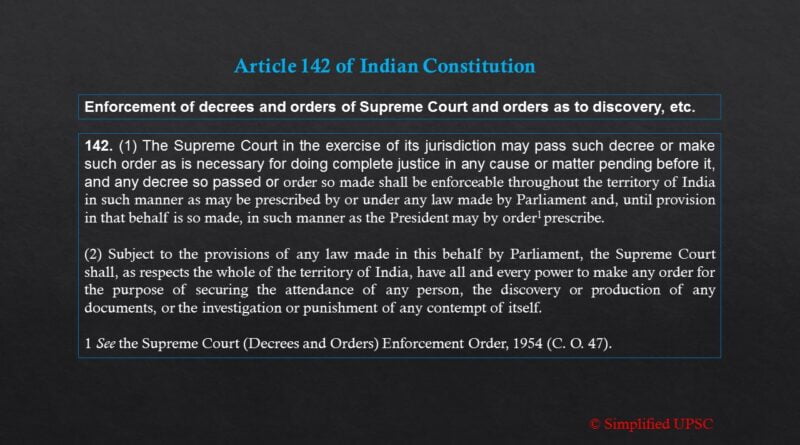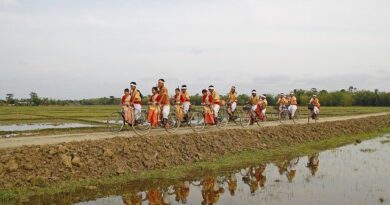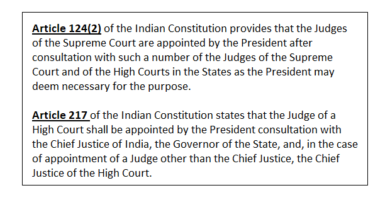Article 142 of Indian Constitution
Context
Former law minister Ashwani Kumar has written to the Chief Justice of India (CJI) and other judges of the top court urging them to take note of the worsening COVID-19 situation and issue “suitable directions” to the Centre and State governments to ban political rallies, protest assemblies and religious or festive congregations of more than 50 people.
He asked the Supreme Court to issue suitable directions suo-moto in the exercise of its plenary jurisdiction (Under Article 142).
Why it needs:
It is officially acknowledged and medically confirmed that the life-threatening surge in the number of corona cases, which is highest in the world, is substantially on account of a free run enjoyed by the super-spreading events, including political rallies, religious congregations and festive events. While there may be a case against a complete lockdown, it was essential to put a stop to mass gatherings that spread the COVID-19 infection.
Article 142 of Constitution:
- Article 142 of Constitution of India deals with Enforcement of decrees and orders of the Supreme Court. It states that the Apex Court in the exercise of its jurisdiction may pass such decree or make such order as is necessary for doing “complete justice” in any case pending before it.
- Such orders of the Supreme Court are enforceable throughout the territory of India as prescribed by any law made by Parliament or order of the President of India
- Article 142 enables superseding the executive and the legislative
- From Article 142, the Supreme Court derives overarching powers to perform the functions of Executive and legislative in order to bring about complete justice.
- In this pursuit, Article 142 is supplemented by the Articles 32 (Right to constitutional remedies), Article 141 (The law declared by the Supreme Court shall be binding on all courts within the territory of India) and Article 136 (Special Leave petition).
- This is often termed as judicial activism. To do “complete justice” it has often overridden the laws made by Parliament such as in the following cases.
- Union Carbide Case: In 1989, the Supreme Court invoked Article 142 to provide relief awarding the compensation of to victims affected in the Bhopal Gas Tragedy.
- Coal Block Allocation Case: In 2014, the Supreme Court used the said provision of the constitution to cancel the allocation of coal blocks granted from 1993 onwards who were guilty of wrongdoing and imposed a penalty on coal mined illegally.
- Ban on liquor sale on highways case: In 2016. under Article 142 the apex court banned the sale of alcohol within a stipulated distance of 500 metres form the outer edge of the highway. Such a decision was taken to avoid accidents due to drink and drive.
Merits of Article 142
- Judiciary has used the powers under 142 for upholding citizens’ rights and implementing constitutional principles when the executive and legislature fails to do so.
- As the guardian of the constitution Article 142 provides its power to fill the statutory vacuum.
- It also sets out a system of check and balance and controls to the other branches of the government. For example:
- In Vishakha vs State of Rajasthan case, Supreme Court laid down the guidelines to protect a woman from sexual harassment at its workplace
- Bandhua Mukti Morcha Case the Hon’ble Court gave its landmark judgment on bonded labour system of India
- In Olga Tellis Case where Right to livelihood was declared part and parcel of the right to life.
Demerits Of Article 142
- Unaccountability: One of the demerits of the powers of the Supreme Court under Article 142, is that unlike the executive and legislature, it cannot be held accountable for its decisions.
- For example in one of the verdicts, the apex court banned e-rickshaws in certain parts of delhi without making provisions for alternative employment. However, it cannot be held accountable for violating the fundamental right to to carry on any occupation or trade.
- In the coal block allocation case, The Supreme Court did not hear individuals and their particular facts, but only their associations were heard.
- Judicial under-reach: The problem of judicial under-reach arises where courts shirk its responsibilities, despite having the jurisdiction, resulting in injustice.
- Like majority of the petitions/appeals filed before the Supreme Court under Article 136 of the Constitution of India are dismissed, but its judges are not liable to explain the reasons for such dismissal.
- Repeated interventions of courts can diminish the faith of the people in the integrity, quality, and efficiency of the government.




